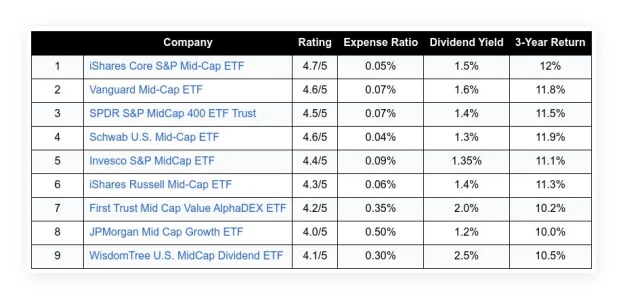Investing in your retirement is a long-term journey that requires careful planning, consistent saving, and a clear understanding of potential pitfalls. Despite the prospect of a comfortable and fulfilling retirement, many individuals unknowingly make mistakes that jeopardize their financial security. For a smooth transition into retirement, you must avoid these common errors.
In this blog post, you’ll read ten retirement planning mistakes you cannot afford to make and practical advice to help you navigate the road to a secure future.
Table of Contents
Toggle1. Starting Too Late: The Power of Early Savings
When planning for retirement, time is a significant advantage. Yet 20% of Americans ages 50+ have no retirement savings, and more than half (61%) worry they won’t have enough money to support themselves in retirement. Okay, let’s say you started too late; what’s done is done. Start now, do it as soon as you can.
If you start saving early, your money has more time to grow through compound interest. Essentially, compound interest is the interest you earn on your original investment plus the interest you’ve already earned. Over time, you can significantly increase your retirement savings with this snowball effect.
On the other hand, delaying your savings, even by a few years, can have a profound impact. To achieve the same retirement income as you do now, you will want to make significantly larger contributions later in your career.
Ultimately, by starting early, even with small contributions, compound interest can work its magic to grow your nest egg. So, no matter how small the amount may seem, start saving today.
2. Failing to Create a Retirement Plan: Charting Your Course
Regarding retirement, having a clear plan is like going on a road trip without a map — or GPS. It outlines your financial goals, estimates your required income, and establishes a retirement savings strategy. You can read the retirement Guides on Due for additional information.
An effective plan should at least include;
- Estimating your retirement expenses. Make sure you consider the cost of housing, healthcare, food, travel, and other lifestyle expenses. According to Fidelity, you should expect to spend between 55% and 80% of your annual income throughout retirement, depending on your income, retirement lifestyle, and healthcare expenses.
- Projecting your retirement income sources. Be sure to include Social Security, pensions, and investment income.
- Determining your savings goal. Determine how much you need to save to bridge the gap between expenses and income.
Unless you have a retirement plan, you’ll likely underestimate your needs, overestimate your resources, and ultimately fall short of your retirement goals.
3. Neglecting to Account for Inflation: The Silent Eroder
Over time, inflation will gradually increase the price of goods and services, reducing your purchasing power. In other words, the money you save today will buy less in the future. Due to this, if you fail to factor inflation into your retirement planning, you may not have enough funds to maintain your desired lifestyle.
If you are projecting retirement expenses, you’ll want to look at inflation (around 3% historically). Ensure your portfolio includes investments that can outpace inflation, like stocks, bonds, real estate, and commodities. Also, keep up-to-date with economic conditions by regularly adjusting your financial plan and investments.
4. Relying Solely on Social Security: A Supplemental Source, Not a Sole Solution
Despite its value, Social Security has limitations, which many retirees need to understand. Rather than replacing your retirement income completely, Social Security merely supplements it — and barely that. Generally, Social Security benefits replace only about 40% of pre-retirement income. This is significantly less than the 70-80% recommended by most financial advisors.
When you depend solely on Social Security, you are at risk of financial hardship. For a comfortable retirement, you should supplement your benefits with personal savings, 401(k)s, IRAs, and other investments.
5. Underestimating Healthcare Costs: A Significant Expense
For many retirees, healthcare expenses are a significant concern. According to some studies, a retired couple may need up to $351,0002 to cover health care costs. So, this is a valid issue that should be addressed.
Wait, what about Medicare? While it covers essentials, it doesn’t cover everything. The costs of prescription drugs, dental and vision care, long-term care, and supplemental insurance can quickly add up. And if you think you don’t have deductibles on Medicare, think again. You do, and it adds up on a meager Social Security check.
Putting off planning for healthcare costs can cause a significant strain on your retirement savings. You may want to consider investing in Health Savings Accounts (HSAs), which offer tax benefits for healthcare savings. You may also be able to cover the costs of extended care with long-term care insurance.
6. Ignoring Tax Implications: Minimizing Your Tax Burden
Believe it or not, taxes don’t go away when you retire. In addition to traditional IRAs and 401(k)s, a portion of your Social Security benefits may also be taxed as ordinary income. Suffice it to say that neglecting these tax implications can significantly reduce your net retirement income.
Diversifying your retirement savings across different types of accounts will help you minimize your tax burden. This includes tax-deferred accounts (401(ks) and IRAs) and tax-free accounts (Roth 401(k)s and Roth IRAs). As a result, you will have greater flexibility in retirement, and your tax burden will be minimized.
However, always consult a tax advisor to develop a tax-efficient withdrawal strategy.
7. Taking on Too Much Risk (or Too Little): Finding the Right Balance
Financial goals, risk tolerance, and time horizon should all be considered when developing your investment strategy. When you invest too aggressively, especially as you approach retirement, you may suffer significant losses. In contrast, being overly conservative can prevent your savings from keeping pace with inflation and meeting your long-term needs.
Finding the right balance is essential in the end. As you approach retirement, rebalance your portfolio regularly to maintain your preferred asset allocation.
8. Failing to Diversify Your Investments: Spreading the Risk
Diversification is one of the cornerstones of sound investing. You’ve heard it before, and you know this. Your risk increases significantly when you invest all your eggs in one basket, be it a single stock, sector, or asset class. It is possible that your entire portfolio could suffer if that investment performs poorly.
In a diversified portfolio, you invest in stocks, bonds, and real estate across several asset classes. As a result, any individual investment’s performance won’t impact your overall returns as much. By diversifying your investments, you reduce risk and improve your chances of achieving steady, long-term growth.
9. Cashing Out Retirement Accounts Early: A Costly Mistake
You can make a costly mistake by withdrawing funds from your retirement accounts before retiring. In addition to paying income taxes on the withdrawn amount, you will usually face penalties (usually 10%). Additionally, you’ll lose the opportunity to grow those funds in the future.
Unless it is an absolute emergency, avoid tapping into your retirement savings. Before taking early withdrawals, consider other options, such as creating an emergency fund or reducing expenses.
10. Not Adjusting Your Plan Over Time: Staying on Track
There is no such thing as a one-time retirement planning event; it is an ongoing process that requires regular adjustment and review. Your plan may need to be adjusted as your life circumstances, market conditions, and personal goals change.
Your retirement plan should be reviewed regularly with a financial advisor to ensure it remains appropriate for your current circumstances and future goals. Keeping this process ongoing will make you better prepared for any unexpected changes.
Final Thoughts: A Secure Future Starts Today
Putting together a retirement plan is not only complex but also essential. If you avoid these ten common mistakes, you will be significantly more likely to achieve a financially secure and fulfilling retirement.
So, get started early, develop a comprehensive plan, stay informed, and seek professional assistance when needed. The effort you put into planning now will pay significant dividends for your future.
FAQs
Why is it essential to avoid retirement mistakes?
By avoiding these mistakes, you can maintain financial security in retirement. The result can be insufficient funds, forced lifestyle changes, and increased stress during what should be a relaxing time.
How can I avoid making retirement mistakes?
Invest wisely, create a realistic budget, consult a financial advisor, and regularly review your plan.
How much should I save for retirement?
It’s impossible to give a one-size-fits-all answer. Generally, you should aim for 10-15% of your pre-tax income during your working years. However, the amount depends on your desired lifestyle, anticipated expenses, and other income sources such as Social Security.
How should my investment strategy change as I approach retirement?
As you approach retirement, it’s generally recommended that you gradually shift toward a more conservative portfolio, with more bonds and fewer stocks. However, a certain amount of growth potential must be maintained to combat inflation.
Where can I get help with retirement planning?
For more information, consult a financial advisor, a retirement planner, or another qualified professional. In addition, read the Guides on Due about retirement, and there are many online resources and tools at your disposal.
Image Credit: Photo by Kindel Media; Pexels

















